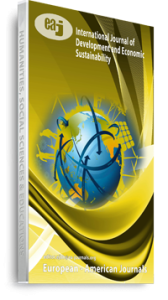ABSTRACT
The study empirically evaluates the impact of small and medium scale enterprises on the growth of the Nigerian economy using the error correction method (ECM). The study adopted annual times series data for Nigeria spanning a period of 43 years (1970 to 2012). The finding of our results suggests that the theoretical modeling requirements for all the variables used in the regression satisfy the statistical requirements that determine the choice of the statistical model. The result from the estimated model shows that both human capital development (HCD) and bank loans to small and medium scale enterprises (BLSME) were statistically significant as well as positively influence the growth of the Nigerian economy. Therefore, more concerted effort should be employed by government at all level to make training and retraining of their man–power both in public and private sectors to acquire the necessary skills required in modern business technique. This will boost their efficiency and productivity as well as bolster its share in the growth of the country’s economy. In the light of the foregoing, we recommend that government at all level should provide incentives and favourable business environment for SMEs to flourish. It should also sustain the current ongoing reforms in the sector to stimulate productivity as well as the continuous enlightenment campaign by the Central Bank of Nigeria, banking industries, relevant government ministries and agencies while indigenous entrepreneurs must be ready to show greater desire to institutionalize and separate company from self and be ready to be helped
Keywords: Error correction method, SMEs, Stability, economic growth

